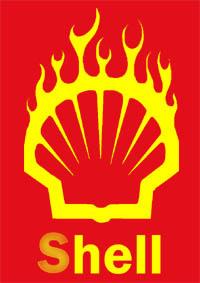 Shell Apologises for Human Rights Violations in Niger Delta
Shell Apologises for Human Rights Violations in Niger Delta
The Hague, 27 March 2010
Today, Royal Dutch Shell is holding back the tears no more. Shell apologises to all inhabitants of Nigeria’s Niger Delta for the many years of human rights violations, for which Shell takes full responsibility.
Confronted with massive evidence of human rights violations that can only be attributed to its operations in the Niger Delta, Royal Dutch Shell is extremely proud to be the first international petrochemical company to publicly say:
We are sorry.
Since Shell first discovered oil in the Niger Delta in 1956, the company has ravished the land and polluted the environment. “We thought these people didn’t know what was good for them,” explains Bradford Houppe, Vice-President of Shell’s newly established Ethical Affairs Committee. “We never knew that we were bringing them impoverishment, conflict, abuse and deprivation. Now we know.” Shell acknowledges that it is responsible for large-scale oil spills, waste dumping and gas flaring. Each year, hundreds of oil spills occur, many of which are caused by corrosion of oil pipes and poor maintenance of infrastructure. “Our failure to deal with these spills swiftly and the lack of effective clean-up greatly exacerbate their human rights and environmental impact,” says Houppe. “And that is wrong. It’s just really wrong.”
More than 60 per cent of the people in the Niger Delta depend on the natural environment for their livelihood. But due to the oil pollution, many of them use polluted water to drink and to cook and wash with, and eat fish contaminated with oil and other toxins. Oil spills and waste dumping have also seriously damaged agricultural land.
The destruction of livelihoods and the lack of redress have led people to steal oil and vandalise oil infrastructure in an attempt to gain compensation or clean-up contracts. Armed groups engage in large-scale theft of oil and the ransoming of oil workers. Government reprisals frequently involve excessive force and the collective punishment of communities, thus deepening general anger and resentment.
Between 2005 and 2008, the Nigerian government received around $36 billion in taxes and royalties from Shell. “They have never, not in the slightest, held us to account for all the wrong we did,” says Houppe. “So without taking back any of our apologies, by all means: blame them too!”
A comprehensive Plan of Action, featuring general apologies, detailed apologies, apologies in Braille and apologies in rhyme that Shell employees will hang on the walls in their offices, will be presented at Shell’s Annual General Meeting on 18 May 2010 in The Hague.
